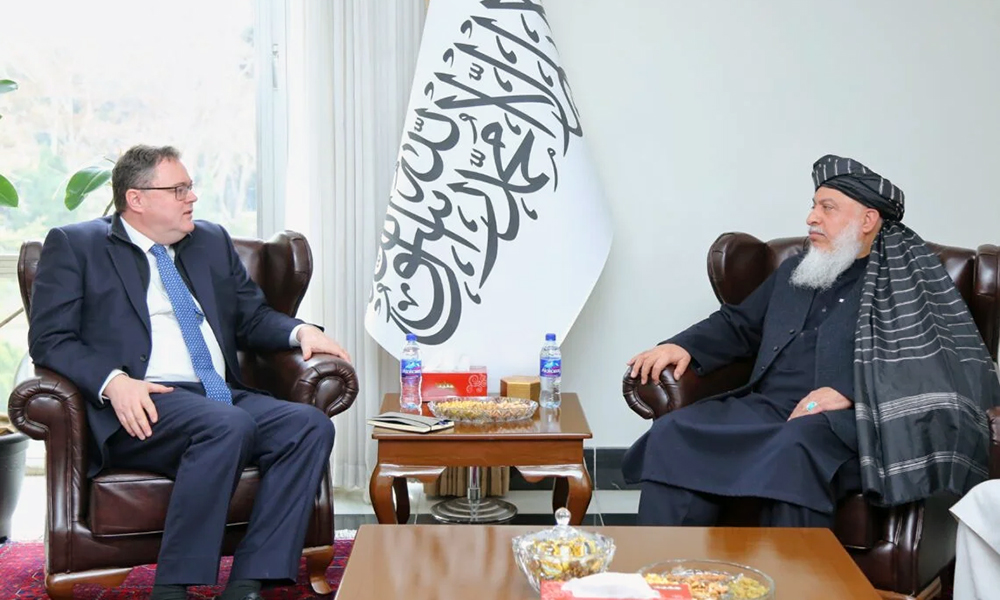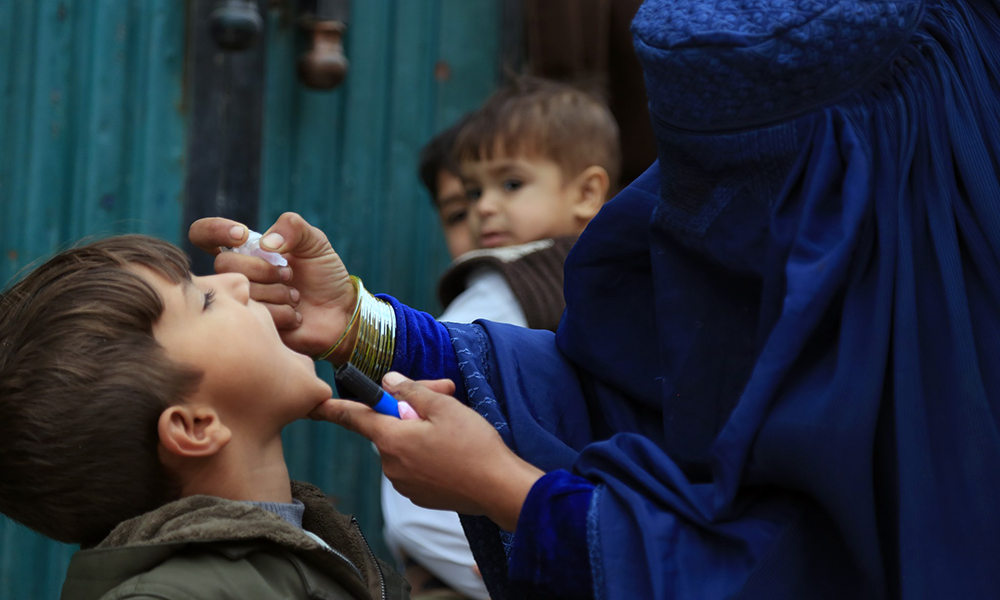Latest News
Pakistan ready to be a partner for peace but will not host US bases: Imran Khan

Pakistan’s Prime Minister Imran Khan has said his country is ready to be a partner for peace in Afghanistan with the United States but that it will not host US military bases.
In an opinion article for the Washington Post, Khan said: “Our countries have the same interest in that long-suffering country: a political settlement, stability, economic development and the denial of any haven for terrorists.
“We oppose any military takeover of Afghanistan, which will lead only to decades of civil war, as the Taliban cannot win over the whole of the country, and yet must be included in any government for it to succeed,” he wrote.
He acknowledged that in the past, Pakistan had made a mistake by choosing between warring Afghan parties, “but we have learned from that experience. We have no favorites and will work with any government that enjoys the confidence of the Afghan people. History proves that Afghanistan can never be controlled from the outside”, he said.
Khan also said that after joining the US effort to bring stability to Afghanistan, his country was targeted as a collaborator which in turn led to terrorism attacks against his country.
He also said that US drone attacks did not win the war but instead created hatred for Americans “swelling the ranks of terrorist groups against both our countries.”
Khan also stated that the United States pressured Pakistan to send its troops into the semi autonomous tribal areas bordering Afghanistan, “in the false expectation that it would end the insurgency. It didn’t, but it did internally displace half the population of the tribal areas, 1 million people in North Waziristan alone, with billions of dollars of damage done and whole villages destroyed.”
He said the “collateral” damage to civilians in that incursion led to suicide attacks against the Pakistani army, killing many more soldiers than the United States lost in Afghanistan and Iraq combined, while breeding even more terrorism against Pakistan.
Khan also stated that there are more than three million Afghan refugees in Pakistan and in the event of another civil war, instead of a political settlement, there will be many more refugees, which will further destabilize and impoverish the frontier areas along the border.
He said that if Pakistan were to agree to host US bases, from which to bomb Afghanistan, and an Afghan civil war ensued, Pakistan would be targeted for revenge.
“We simply cannot afford this. We have already paid too heavy a price.”
He also stated that if the United States, “with the most powerful military machine in history”, could not win the war from inside Afghanistan after 20 years, how would America do it from bases in Pakistan?”
Khan said Pakistan and the US share the same interests - they both want a negotiated peace, not civil war.
He said Pakistan supports an agreement that preserves the development gains made in Afghanistan in the past two decades, economic development, and increased trade and connectivity in Central Asia.
“We will all go down the drain if there is further civil war,” he stated.
According to him, Pakistan has worked hard to get the Taliban to the peace talks table, “first with the Americans, and then with the Afghan government.”
He also said however that Pakistan knows if the Taliban tries to declare a military victory, it will lead to endless bloodshed.
But he said Islamabad hopes the Afghan government will show more flexibility in the talks, and stop blaming Pakistan.
In conclusion he said he believes that promoting economic connectivity and regional trade is the key to lasting peace and security in Afghanistan. “Further military action is futile.”
Latest News
Eight Afghan migrants die as boat capsizes off Greek island

Eight Afghan migrants died after a speedboat carrying migrants capsized off Greece's eastern island of Rhodes on Friday, the Associated Press reported.
Greek authorities said that the capsizing was the result of the boat’s maneuvering to evade a patrol vessel.
A total of 18 migrants — 12 men, three women and three minors — all Afghan nationals, were rescued, Greece's coast guard said Saturday. The dead were also from Afghanistan, it said.
Some migrants remained hospitalized, with one in critical condition, authorities said.
Two Turkish citizens, ages 23 and 19, were arrested as the suspected traffickers. The boat sank after capsizing, the coast guard said.
The sinking off Rhodes was the second deadly incident involving migrants in the past week.
Seven migrants were killed and dozens were believed missing after a boat partially sank south of the island of Crete over the weekend — one of four rescue operations during which more than 200 migrants were rescued.
Latest News
Norwegian Chargé d’Affaires meets with IEA deputy foreign minister
Welcoming the diplomat’s visit to Kabul, Stanikzai underscored the importance of political relations between Afghanistan and Norway, the foreign ministry said in a statement.

The Norwegian Chargé d’Affaires for Afghanistan, Per Albert Ilsaas, on Saturday met with IEA’s Deputy Foreign Minister for Political Affairs, Sher Muhammad Abbas Stanikzai, in Kabul.
Welcoming the diplomat’s visit to Kabul, Stanikzai underscored the importance of political relations between Afghanistan and Norway, the foreign ministry said in a statement.
In addition to focusing on bilateral political, humanitarian, and other pertinent issues, the two sides expressed hope that continued engagement would lead to constructive solutions to related issues.
This comes two weeks after the Foreign Ministry Spokesman Abdul Qahar Balkhi expressed disappointment regarding the decision by the Norwegian government to downgrade diplomatic relations with Afghanistan.
Balkhi said in a post on X that such decisions should not be linked with internal affairs of other countries.
“Diplomatic engagement is most effective when it fosters mutual understanding and respect, even amidst differing viewpoints,” he stated.
“Access to consular services is a fundamental right of all nationals. We strongly urge all parties to prioritize this principle in the spirit of international cooperation,” he added.
Latest News
A new polio vaccination campaign is set to launch in Afghanistan
Afghanistan and Pakistan are the only two countries in the world where polio has not been eradicated.

The “Afghanistan Polio-Free” organization announced that a new round of polio vaccinations will begin on Monday, December 23, in various provinces of Afghanistan.
The organization did not specify which provinces will be targeted or how long the vaccination campaign will last.
Afghanistan and Pakistan are the only two countries in the world where polio has not been eradicated.
On December 4, 2023, the World Health Organization (WHO) issued a statement reporting a 283% increase in polio cases in Afghanistan. According to the WHO, the number of positive environmental samples for wild poliovirus type 1 in Afghanistan in 2024 reached 84, compared to 62 cases in 2023.
The Ministry of Public Health claimed in November 2024 that no new cases of polio had been reported in Afghanistan for the year.
-

 Sport4 days ago
Sport4 days agoZimbabwe’s opening ODI against Afghanistan abandoned
-

 World3 days ago
World3 days agoNorth Korean troops suffer 100 deaths, struggling in drone warfare, South Korea says
-

 Latest News1 day ago
Latest News1 day agoAfghan men must stand with women to support viable future of country: US envoy
-

 Latest News3 days ago
Latest News3 days agoTwo horror accidents on Kabul-Kandahar highway leave 52 dead
-

 Sport3 days ago
Sport3 days agoAfghanistan crush Zimbabwe by 232 runs in second ODI
-

 International Sports4 days ago
International Sports4 days agoLanka T10: Kandy Bolts in at 4th spot in playoffs after thrilling day
-

 Regional4 days ago
Regional4 days agoIran’s president to make rare visit to Egypt for D-8 summit
-

 Tahawol5 days ago
Tahawol5 days agoTahawol: Latest developments in Syria reviewed
























